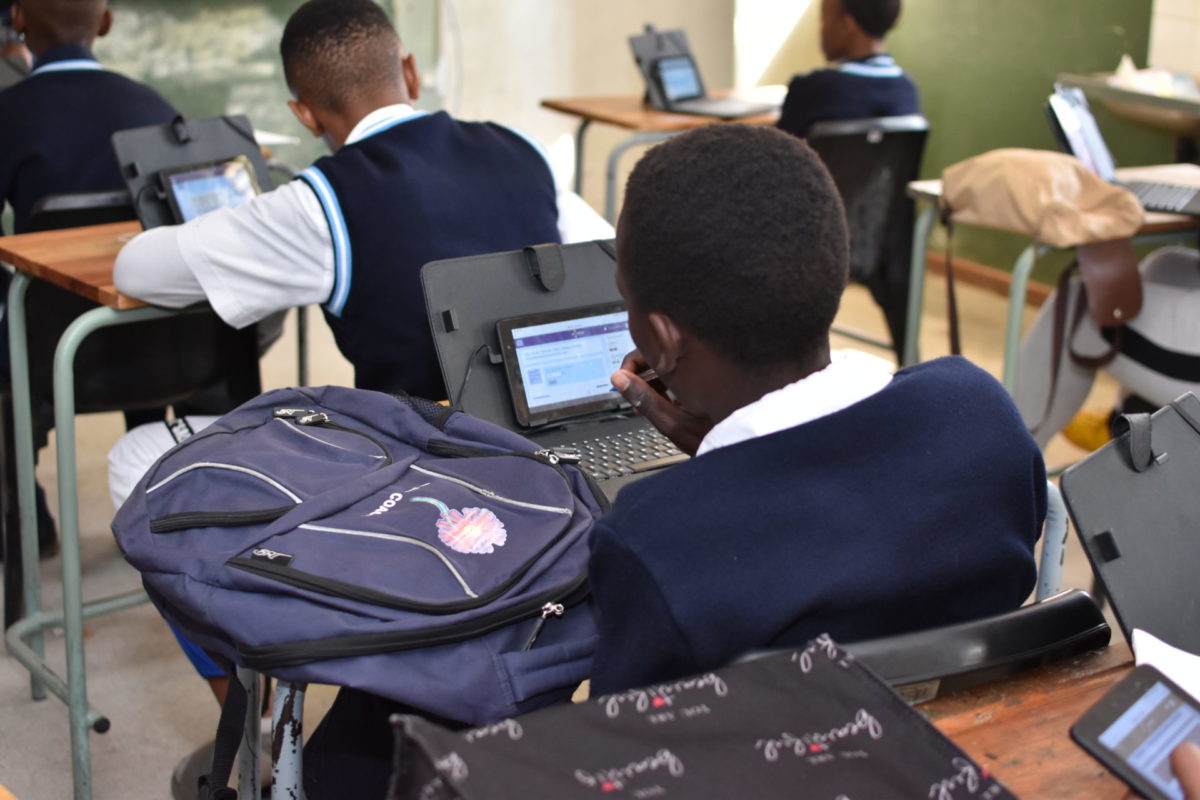Transitions – Gauteng-based grantee – shares how the start of COVID-19 enabled them to quickly transition from physical classes to online learning. Since then, they have never looked back. Online learning is being used as one of their modes of teaching and learning. Lungi Mnyamana tells us more about their methods…
What does your organisation do to equip youth with digital or e-learning skills?
The start of COVID -19 in early 2020 gave us an opportunity to pivot very quickly and transition our learners from physical classes to online. To achieve this, we invested some of the funds towards tablets that learners and tutors could use to keep the learning going and uninterrupted at a time when they needed it the most, with schools also going into lockdown. We learned a lot in this process and started looking at how this unfortunate situation drove us to bridging a huge digital divide seen in our education system between private and public schools. This has motivated us to further explore opportunities that equip our young people with self-managed learning. To date we have included a new cohort of grade 8 learners who are specifically learning Mathematics 100% online, thanks to our partners OLICO.
Why is it important for youth from under-resourced communities and schools to receive access to digital learning and resources?
The future is digital, and we can’t run away from that. Not exposing learners to e-learning is only a disservice that creates a barrier to learning when they get to tertiary. This is part of education, and our constitution stipulates that all children deserve free education. Though often seen as a luxury e-learning not only equips learners with skills to self-teach, research and network with peers, but it also equips learners with the invaluable access to information they would not ordinarily have access to.
Besides practical knowledge and access to digital technology, what else do you think South African youth need to thrive?
South African youth need access to people they can look up to, close mentors and distant mentors. Digital technology gives them the ability to access this network of people through professional networks like LinkedIn. They not only get access to people they would not ordinarily interact with, but they also have an opportunity to learn more about careers that are out there, read and learn from people who are in those jobs daily. Gone are the days of knocking at doors asking for people to mentor you. In the age of digital technology, learners can put together a board of mentors who help shape their lives without ever even meeting them. This is the power of technology.
Though often seen as a luxury e-learning not only equips learners with skills to self-teach, research and network with peers, but it also equips learners with the invaluable access to information they would not ordinarily have access to.
